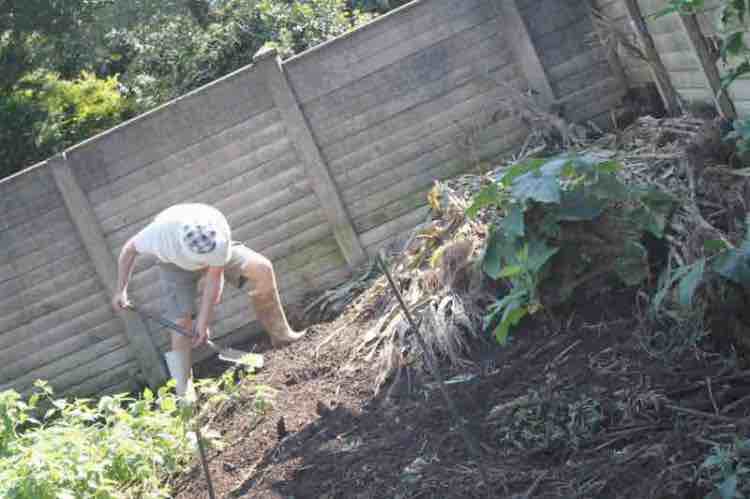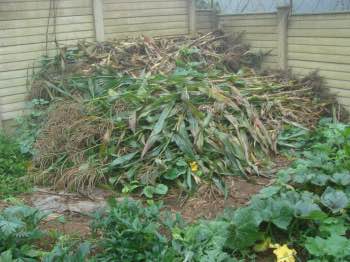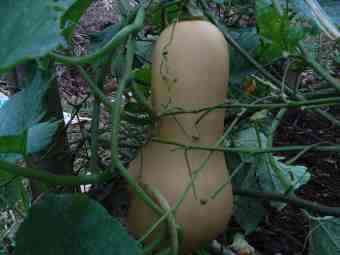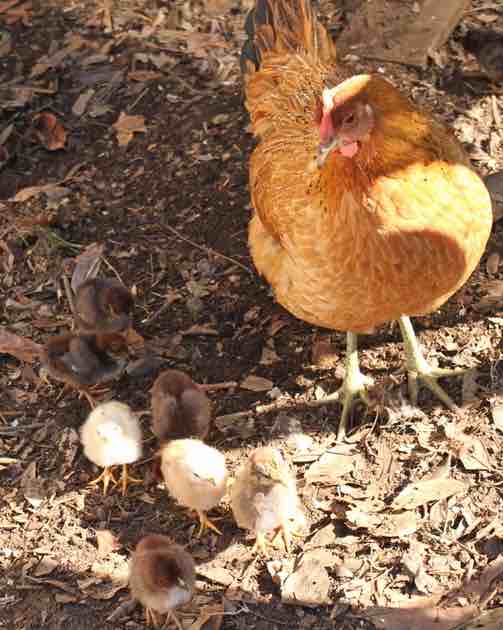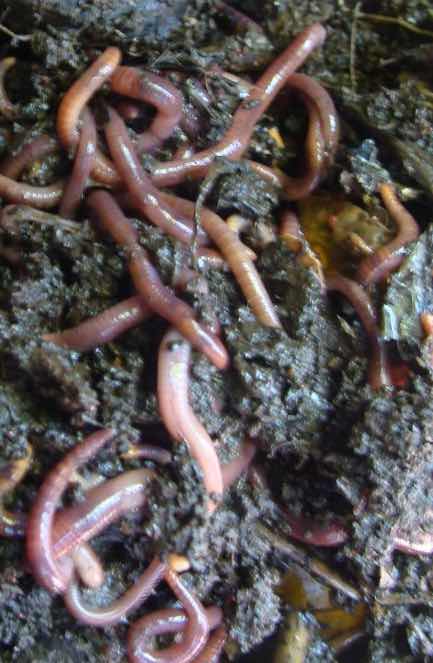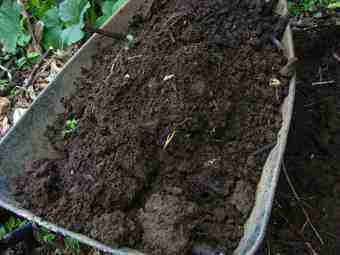| Back to Back Issues Page |
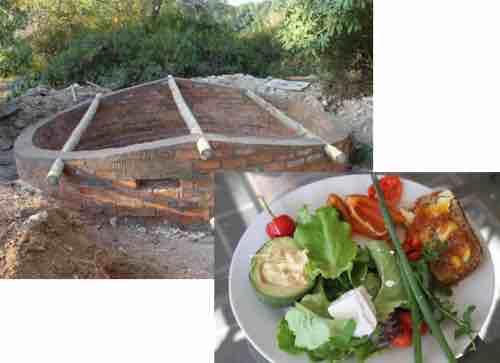 |
|
What can go in compost August 10, 2020 |
DearWhat can go in compost?What can go in compost is important if you are serious about saving the planet from green-house gases; and creating better soil in your garden. Greetings from Bernard Preston to this sixth email about how to create a Cyan Zone at your home; blue and green issues.
Today we talk about compost piles and what can go in them. Artificial fertilizers in your garden have their place, perhaps but they can never replace the host of nutrients that compost will return to the soil. Just the humic acid that increases the absorption of water and nutrients by the roots of your vegetables alone makes it a worthwhile exercise. And exercise it is; both turning the compost pile and barrowing the rich fertile humus to your veggie patch beats going to any gym; and you will have something to show for all your hard work at the end of the session. Blue Zone people in all five places are gardeners and that is where they get much of their exercise that contributes to their longevity. Incidentally catch the series on Netflix if you have subscribed; or at a friend's home. It is simply marvelous seeing what makes these folk tick.
AirThe first and most important ingredient in your compost pile is air; don't compact it because the multitude of micro-organisms that are busy consuming your leaves, grass cuttings and kitchen waste need oxygen to flourish. An anaerobic heap will stink.Also the soil in your garden acts as a carbon sink; as you compost and mulch, CO2 is captured from the atmosphere and returned to the earth. Believe it not, there is three times as much carbon in the top one metre of soil as there is in the whole of the atmosphere. Abuse of the earth releases it into the air. Watch this spectacular National Geographic video showing how the forests of the planet act like a giant vacuum cleaner that is turned on in the beginning of summer, dramatically sucking CO2 greenhouse gas clouds out of the atmosphere. Scroll down to the first video and watch right until June at least. You do have to sign up, give your email but it costs nothing; fascinating short film.
Fibrous stalky materialAt the base of your compost heap you will want to place old rotting logs, stalks of plants like corn or ginger for example and generally rough material that you would otherwise have to cart off to the dump. Within a few months it will be concentrated down into a tenth of its volume and be ready to return as rich humus to your soil.
Fresh green materialYou need alternating rough dried stuff with fresh green material like grass cuttings. The captured carbon dioxide from the atmosphere you can then return to the earth where it belongs; the horrific climate change that we are witnessing is just the beginning.
"Give until it hurts; what is the point of having experience, knowledge or talent if I don't give it away? Of having stories if I do not tell them to others? Of having wealth if I do not share it? I do not intend to be cremated with any of it! It is in giving that I connect with others and the world; and with the divine."
- Isabel Allende
Why do we send stuff to the dump?Perhaps you have a very small garden and there's simply no room; or are you just afraid of hard work? All I can tell you is that by building compost piles it connects me to the earth. It is most rewarding and satisfying. And it provides the organic nutrients for the most delicious vegetables in the world.If you value your health build compost heaps and grow as many of your own vegetables as you can.
Half a million children go blind every year from a vitamin A deficiency; many die within 12 months. Just two helpings a week of that butternut would completely sort the problem out. Kitchen waste materialUncooked vegetable material from your kitchen is perfect for your compost. Those potato peels and apple cores are just what the teeming billions of bacteria in the pile love.Teabags and coffee grounds too, egg shells as long as they were not hard boiled and raw meat is fine. You may read that citrus peels should not be composted; I have no difficulty, but it does take a little longer.
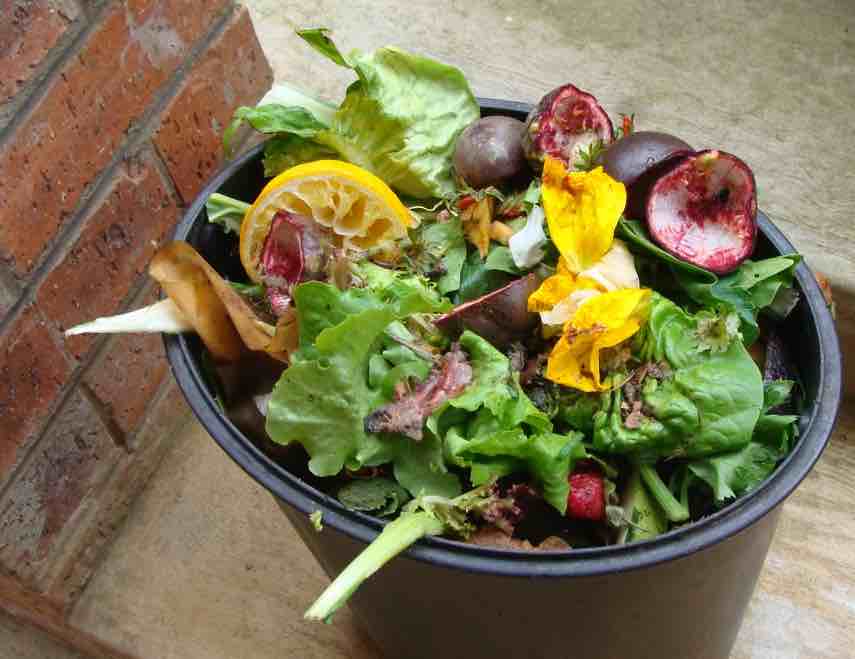
Dead animals from the gardenDead birds that you find in your garden and, dare I say it? Even the body of your pet dog that had to be put down will be just fine.
"We therefor commit this body to the ground, earth to earth, ashes to ashes, dust to dust; in sure and certain hope of the Resurrection to eternal life." - Book of Common Prayer Interestingly all five Blue Zone communities are religious but they do not belong to any one faith; in essence, caring for ourselves and the planet is a spiritual issue. ManureThe manure from herbivores like horses, cows and chickens is perfect for your compost heap; in particular it adds nitrogen.This hen takes her brood every day to the pile, feeding them on the host of microscopic organisms and adding their poop to the mix.
Vermicompost and wormsAdding both the wrigglies from a worm farm, should you have one and the vermicompost they produce is hugely beneficial to your heap.Worm farming is a subject you may want to consider, whether you keep chickens or not. The bulk of ours go to feed the flock; they need the protein.
Water from the duckpondFriends of our run water from the duckpond onto their compost pile; it is full of faeces and bacteria. They claim the process is greatly enhanced and the temperature in the centre of the heap much higher.What is so special about compost?You can't continually take from the soil without putting something back.Many would add inorganic fertilizers but none can compare with your own compost. It is primarily a green issue to do with enriching the soil and reducing greenhouse gases; by improving the nutritional value of our fruit and vegetables it really does also contribute to our own well-being. What can you add to your compost is a true Cyan Zone subject for discussion.
Making a compost pile Next weekNext week features the Blue Zone; the importance of community is high.Pass this newsletter on to friends and family; soon greenies are hoping that awareness of the way we are destroying the environment will reach a tipping point; the place where a substantial number of people all try to do some small things to reverse the destruction of the place where future generations will have to live. And start planning even a small compost pile in a corner of your garden. They are untidy things; some folk have special containers to neaten everything up.
Start an email folderWhilst these emails are not long, you may not have time to read and watch right now; save them for later.Starting a compost pile Take care of yourself and the planet. Plan to live to a strong and zestful ninety; and who knows perhaps even one hundred. Bernie
|
| Back to Back Issues Page |
